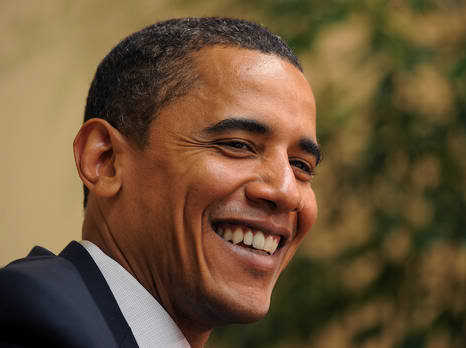Larry Benjamin's Blog: Larry Benjamin's blog - This Writer's Life - Posts Tagged "larrry-benjamin"
Vampire Rising & Its Angel Number: An Explanation
A reader, who recently finished Vampire Rising, commented that it was different from my other books mostly because with the others I spent a lot of time on character development so readers really got to know the characters. And that is true, with What Binds Us we follow Dondi, Thomas and Matthew for ten years; in Unbroken we first meet Lincoln at age six and Jose at age 12. Their story spans 40 years and we watch them grow from children into brave young men and on into parenthood.
Vampire Rising is a very short book. It tells the story of the damaged Vampire, Gatsby, who is still reeling from a decision made 200 years earlier that saved a life and cost him his love, and the young human, Barnabas, who, abandoned by his mother, becomes a ward of the state, unwanted and invisible for too long.
But the story really isn’t about Gatsby and Barnabas; the story is an allegory, it’s a metaphor for how (poorly) we treat those considered the least among us are a metaphor. But, I tried to give readers a feel for who each is as a person and how he is seen through the eyes of the other, and I do hint at their personal histories, at their back story but I never fully explain either. And that was deliberate. I wanted to focus on the messages in the story.
I looked to great works of fiction as inspiration for Vampire Rising. Bram Stoker’s Dracula, Harper Lee’s To Kill and Mockingbird, and the Bible, all informed the book.
“Remember it’s a sin to kill a mockingbird.”
These words spoken by Atticus Finch in To Kill and Mockingbird inspired me to replace the signature bat with mockingbirds in Vampire Rising. For the Vampires, like blacks, like Jews, like gays, are not sinful, or guilty, they simply are. And they are innocent in their simply being, in their inability to be otherwise, in their authenticity.
“In manus tuas domine.”
These words spoken by Gatsby to Barnabas, are a quote from Dracula (Van Helsing mutters it on first entering the house of Dracula); the words are also an abbreviation of the last seven words Jesus is reported to have spoken from the cross. Translated as “Into your hands Lord,” these words underscore one of the book’s central themes: trust is essential to life, to love, to partnership.
But it is the address of Gatsby’s house—197 Chicksand Street—that most informs the book. The address, taken from Stoker’s Dracula was the address of one of the houses Dracula buys in and around London. In point of fact it is not an existing address but if it was, it would fall squarely in the center of the area where Jack the Ripper was most active at the time Stoker wrote Dracula.
But what intrigued me most was the number: 197. It is an “angel number”—it is believed that angel numbers are used by our guardian angels to communicate with us.
Keep Reading.
Vampire Rising is a very short book. It tells the story of the damaged Vampire, Gatsby, who is still reeling from a decision made 200 years earlier that saved a life and cost him his love, and the young human, Barnabas, who, abandoned by his mother, becomes a ward of the state, unwanted and invisible for too long.
But the story really isn’t about Gatsby and Barnabas; the story is an allegory, it’s a metaphor for how (poorly) we treat those considered the least among us are a metaphor. But, I tried to give readers a feel for who each is as a person and how he is seen through the eyes of the other, and I do hint at their personal histories, at their back story but I never fully explain either. And that was deliberate. I wanted to focus on the messages in the story.
I looked to great works of fiction as inspiration for Vampire Rising. Bram Stoker’s Dracula, Harper Lee’s To Kill and Mockingbird, and the Bible, all informed the book.
“Remember it’s a sin to kill a mockingbird.”
These words spoken by Atticus Finch in To Kill and Mockingbird inspired me to replace the signature bat with mockingbirds in Vampire Rising. For the Vampires, like blacks, like Jews, like gays, are not sinful, or guilty, they simply are. And they are innocent in their simply being, in their inability to be otherwise, in their authenticity.
“In manus tuas domine.”
These words spoken by Gatsby to Barnabas, are a quote from Dracula (Van Helsing mutters it on first entering the house of Dracula); the words are also an abbreviation of the last seven words Jesus is reported to have spoken from the cross. Translated as “Into your hands Lord,” these words underscore one of the book’s central themes: trust is essential to life, to love, to partnership.
But it is the address of Gatsby’s house—197 Chicksand Street—that most informs the book. The address, taken from Stoker’s Dracula was the address of one of the houses Dracula buys in and around London. In point of fact it is not an existing address but if it was, it would fall squarely in the center of the area where Jack the Ripper was most active at the time Stoker wrote Dracula.
But what intrigued me most was the number: 197. It is an “angel number”—it is believed that angel numbers are used by our guardian angels to communicate with us.
Keep Reading.
Published on September 04, 2015 10:28
•
Tags:
197, angel-numbers, larrry-benjamin, vampire
Smile

This week I am contemplating the smile and the nature of happiness.
Sunday I was walking in Carpenter’s Woods with our two dogs, Toby and Riley. As we swept around a curve in the trail, I spotted a thin androgynous figure moving towards us. As the person emerged out of the shadows I saw it was a young woman; her hair, bleached to the color and consistency of straw, stuck out at almost right angles to the red wool cap pulled low over her forehead. On her face, she wore an expression as devastated as Nagasaki after the bombing. She continued walking towards us with heavy steps, seeming to sink further into the soft earth with every step, the weight of the world’s woes piled on her back.
She stared at us approaching through eyes dulled by the twin cataracts of sadness and disappointment. Riley, spotting her, ran towards her. Her mouth was a thin line of grim determination as she regarded him with a mixture of dread and suspicion. What new hell this? she seemed to be thinking.
Riley rushed up to her, tail wagging, his entire rear end shaking with anticipation.
She looked down at him, “Why he’s the happiest dog ever, isn’t he?” She squatted, and staring into his black button eyes exclaimed, “He looks like he’s smiling!” As I looked at her, a smile like the breaking dawn brightened her face.
And there before my eyes I saw it happen—one smile begat another.
I believe smiling is important. I smile a lot. And I’m a sucker for a man who smiles. Ok, I’m also a sucker for a man with a nice ass but that’s another post.
I’m always telling my husband to smile. I think he’s too cynical and self-conscious to smile for no reason. Often when we are out walking, a stranger, usually a man, will say hello in passing. Inevitably our ensuing conversation goes like this:
He asks, “Do you know him?”
“No.”
“Well, why did he speak to you?”
“I smiled at him.”
Years after we met when we finally started dating Stanley confessed that he thought I was young and silly when he first met me. I asked him why and he a-said it was because I was so giddily happy all the time. I don’t know why people associate happiness with a paucity of mental capacity or good sense, as if happy people are simply too stupid to see all the reasons to be miserable.
Smiles are big for the characters I create, too. I decided to do a search for “smile” in my books and look at the role they play in my stories. Below are some of my favorite smile excerpts from my books.
This scene from “The Lost Boys” a short story from Damaged Angels, is one of my favorites:
The young man looked at him in staring wonder. The trace of a smile played about his lips. His mouth twitched then began a slow upward curve. Even, white teeth gleamed. A sharp red tongue darted between full, soft lips. The smile continued to grow until it seemed to swallow up his face, then stretched to encompass The Merry-Go-Round and with it the tumultuous morning.
The smile, full-blown, touched the Lost Boy like grace. And saved the wretch.
And this from What Binds Us, when Thomas-Edward ill-advisedly hugs the formidable and distant Mrs. Whyte:
She tilted her head up and delivered a stillborn smile when my lips brushed her cheek. As my arms folded around her, I felt a tiny shiver pass through her.
In Vampire Rising, Barnabas understands how the return of a smile can invite, or repel:
When one of the men caught his eye and smiled at him, Barnabas returned the smile, with a tentative one of his own which was clearly a polite acknowledgement, but not an invitation to further intimacy.
And later, it is Gatsby’s smile that confirms Barnabas’ suspicion:
Gatsby smiled and it was then that Barnabas saw the canine teeth. He’d suspected it but still he jumped a little.
In Unbroken, it is Jose’s smile that helps Lincoln discover his own truth, and launches him on a quest to capture the heart of the first boy he truly loves:
I was twelve, and in seventh grade. He was the new kid. His name was Jose Calderon. He walked into fourth period music, smiled, and changed everything. Until that moment, I had believed their lies, had ignored my own truth.
So tell me, in the comments below, how are smiles important to you? Does happiness automatically imply a mental deficiency?
Published on October 20, 2015 18:45
•
Tags:
larrry-benjamin, lgbt, smile
Larry Benjamin's blog - This Writer's Life
The writer's life is as individual and strange as each writer. I'll document my journey as a writer here.
The writer's life is as individual and strange as each writer. I'll document my journey as a writer here.
...more
- Larry Benjamin's profile
- 126 followers



